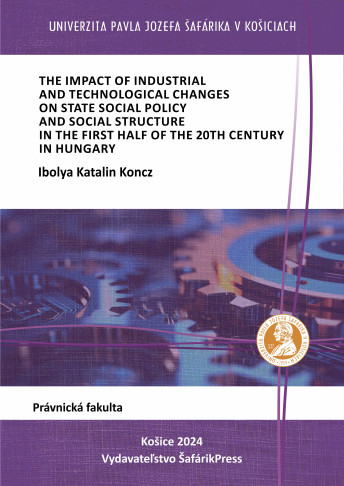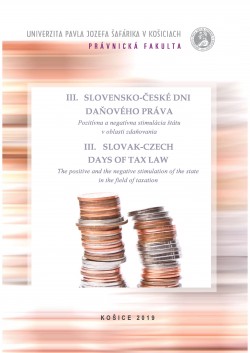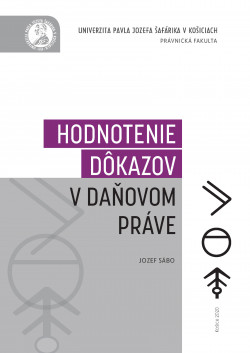The Impact of industrial and technological Changes on state social Policy and social Structure ...

Ďalšie informácie
| Autor: | Ibolya Katalin Koncz |
| Rok vydania: | 2024 |
| Dostupné od: | 28.06.2024 |
| Vydanie: | 1. vydanie |
| Typ dokumentu: | monografia |
| Jazyk publikácie: | angličtina |
| Počet strán: | 188 |
| Fakulta/pracovisko UPJŠ: | Právnická fakulta UPJŠ |
| Poznámka: | The publication was supported by the Slovak Research and Development Agency under the Contract No. APVV-19-0419: „100 Years of Treaty of Trianon“. |
| DOI: | https://doi.org/10.33542/IOI-0338-8 |
| Licencia: | Creative Commons BY NC ND (Uveďte autora - Nepoužívajte komerčne - Nespracovávajte) |
Popis
The exploration of the interplay between innovation and society elucidates fundamental connections between human advancement and societal transformation. Technological development and its dissemination profoundly influence both the economy and social structures, often restructuring them while presenting new challenges and opportunities. This monograph delves into the theme of "Innovation and Society", focusing specifically on how technological advancements impact various facets of society ‒ from the realm of work to social policies and the evolution of gender roles. These areas are approached through a novel lens, examining them from the perspective of legislative reforms enacted and endorsed by the state.
The monograph examines the characteristics and legal framework of 20th-century Hungarian society using diverse laws, regulations, and statistical data. Through analyses and documented evidence, it offers a comprehensive understanding of societal structure and operations, encompassing aspects such as the labor market, female employment, the status of industry and commerce, and shifts in legal frameworks. Detailed statistical insights into population dynamics, labor market trends, and economic sectors further deepen our comprehension of social processes. The documents scrutinize the employment distribution and conditions across different sectors, including food processing and milling, while also providing specific details on the roles, distribution, and wages of women in the workforce, with particular emphasis on occupations where women are prominently engaged. The analysis of legislative provisions delineates the historical backdrop and measures enacted for fostering social and economic transformations, covering issues such as patent legislation, guardianship laws, and family law. This compilation offers an exhaustive overview of 20th-century Hungarian society and its legal underpinnings, enriching scholarly inquiries into historical and sociological dimensions within this domain.
































